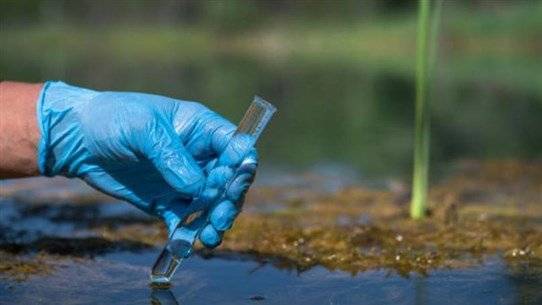After the last case of cholera was recorded in Lebanon in 1993, the epidemic has reappeared, specifically in Akkar. The official tally of reported infections at the time of writing stands at two. It is possible that the first diagnosed case was imported from Syria; however, this does not mean that there are no internal factors contributing to the spread of the epidemic, most notably the lack of maintenance of infrastructure, leading to the mixing of drinking water with sewage. Additionally, there is a shortage of vaccines and the vaccination rates among children have dropped to around 40%. The Minister of Public Health in the caretaker government, Firas Al-Abyad, clarified that "the arrival of cholera in Lebanon was expected," announcing that the ministry has taken several measures to contain its spread, including the formation of a crisis cell and holding continuous meetings, scheduling field visits, and activating water testing laboratories in eight hospitals and labs as a first phase. Despite reassuring citizens that "the outbreak's focus is still contained," Al-Abyad fears "a wider spread if the situation is not addressed."
While awaiting the outcome of the outbreak, what are the symptoms of contracting it? And how can one avoid infection? Infectious diseases physician at "Hôpital Généraux de France" and "Saint Joseph University," Nabil Shahat, explains to "Al-Markazia" that "the cholera bacteria thrive in water and moisture. The main reason for the transmission of the disease is related to the cleanliness of drinking water; if it gets mixed with sewage, disaster strikes, and the disease spreads rapidly. Additionally, washing vegetables and fruits or irrigating agricultural products with wastewater is a major factor in contracting the infection, or even eating food in public places and restaurants without washing it. If an infected person uses the toilet without washing their hands and then meets another person, they can transmit the disease to them."
As for the most prominent symptoms of infection, he summarizes them as follows: "Diarrhea, as cholera is one of the most infectious diseases that cause inflammation and leads to severe diarrhea, often resulting in dehydration that can cause death. There are also stomach pains and fever, sometimes accompanied by vomiting."
Upon experiencing these symptoms, Shahat advises to "consult a doctor immediately, without taking any medication, especially antibiotics." Regarding the treatment of the infection, he clarifies that "treatment methods vary based on cases. What is certain is that the patient should be isolated and is often given a serum of water, in addition to antibiotics." For prevention guidelines, Shahat notes that "cholera is a bacteria that resides in the intestines and does not spread through the air. Clean drinking water is one of the most important means of protection; citizens should ensure the water source is not mixed with sewage and does not contain any bacteria, including cholera or others like Hepatitis A, which has also been present in Lebanon for some time for the same reason. Meanwhile, residents of many areas and villages drink from springs or wells without conducting ongoing tests for water safety. If one must drink water without ensuring its cleanliness, it can be boiled well for at least 5 to 10 minutes. Also, handwashing is essential for prevention, as well as thoroughly washing vegetables and fruits with clean running water, especially since some types like parsley and green vegetables can carry germs, or they can also be soaked for a few minutes in concentrated vinegar before being washed again with water."
As for the vaccinated individuals, he indicates that "they are not highly protected, especially since the Ministry of Health's surveys around the type of cholera strain have not yet been released. Additionally, the vaccine is currently not available in Lebanon, and in countries experiencing alarming cholera outbreaks, thousands often contract the disease and die before the vaccine reaches them; therefore, it comes second as a means of prevention after the aforementioned measures."
What awaits Lebanon? When asked if the country faces a significant risk of an outbreak, Shahat responds, "If the source of infection is identified, the spread can be controlled from the beginning. The threat is serious if the reason is contaminated drinking water consumed by multiple people or contaminated food because control becomes quite difficult." He hopes "to identify the source to contain the disease and limit its spread. If control is achieved over drinking water quality, it is often possible to prevent spread, and it seems feasible to contain it because it is still confined to Akkar." He concludes, "Cholera is one of the deadliest epidemics for humanity, and it is essential to take firm governmental measures to control it quickly."




